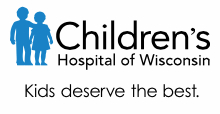Quality of Life in Pediatric Transplant Patients
| Status: | Enrolling by invitation |
|---|---|
| Conditions: | Renal Impairment / Chronic Kidney Disease, Cardiology |
| Therapuetic Areas: | Cardiology / Vascular Diseases, Nephrology / Urology |
| Healthy: | No |
| Age Range: | Any - 21 |
| Updated: | 2/17/2019 |
| Start Date: | October 2008 |
| End Date: | June 2019 |
Quality of Life and Vulnerability in Pediatric Solid Organ Transplant Recipients
The goal of this study is to compare parent and child perceptions of wellness and
vulnerability in children who have undergone solid organ transplant. It is hypothesized that
there will be significant differences between parent and child perceptions.
vulnerability in children who have undergone solid organ transplant. It is hypothesized that
there will be significant differences between parent and child perceptions.
There are numerous studies that report on the quality of life in solid organ transplant
recipients. However, very few studies target quality of life parameters for these children
and their families across all solid organ transplantation. Furthermore, no literature
directly addresses a comparison of perceptions and wellness, impact on family, and
vulnerability in a comparative format by these distinct, but definitely related populations.
The goal of this study is to compare parent and child perceptions of wellness and
vulnerability in children who have undergone solid organ transplant. It is hypothesized that
there will be significant differences between parent and child perceptions. Outcomes will be
measured by using five different instruments:
1. Pediatric Quality of Life Inventory (PedsQL)
2. PedsQL Family Impact Module
3. PedsQL Family Information Form
4. Functional Status II-R
5. Child Vulnerability Scale (CVS)
Patients will be enrolled at the time of transplant listing, or after transplant. Patients
and families will complete the survey once every 6 months while the patient is active on the
respective transplant waiting list. After transplant, the patients and families will be asked
to complete the survey once every 6 months for the first two years and annually thereafter.
This study may provide us with an improved understanding of parent and child perceptions in
wellness, impact on family, and vulnerability within each transplant group. The results may
also indicate trend differences between these three populations. These differences may help
to provide insight into family perspectives allowing for greater anticipatory guidance and
targeted interventions.
recipients. However, very few studies target quality of life parameters for these children
and their families across all solid organ transplantation. Furthermore, no literature
directly addresses a comparison of perceptions and wellness, impact on family, and
vulnerability in a comparative format by these distinct, but definitely related populations.
The goal of this study is to compare parent and child perceptions of wellness and
vulnerability in children who have undergone solid organ transplant. It is hypothesized that
there will be significant differences between parent and child perceptions. Outcomes will be
measured by using five different instruments:
1. Pediatric Quality of Life Inventory (PedsQL)
2. PedsQL Family Impact Module
3. PedsQL Family Information Form
4. Functional Status II-R
5. Child Vulnerability Scale (CVS)
Patients will be enrolled at the time of transplant listing, or after transplant. Patients
and families will complete the survey once every 6 months while the patient is active on the
respective transplant waiting list. After transplant, the patients and families will be asked
to complete the survey once every 6 months for the first two years and annually thereafter.
This study may provide us with an improved understanding of parent and child perceptions in
wellness, impact on family, and vulnerability within each transplant group. The results may
also indicate trend differences between these three populations. These differences may help
to provide insight into family perspectives allowing for greater anticipatory guidance and
targeted interventions.
Inclusion Criteria:
- between newborn and 21 years old
- parent/child pairs of patients listed for or who have received a liver transplant,
kidney transplant, or heart transplant
Exclusion Criteria:
- unwilling or unable to participate
- not in one of the above transplant groups
- non-English speaking
We found this trial at
1
site
9000 W Wisconsin Ave #270
Milwaukee, Wisconsin 53226
Milwaukee, Wisconsin 53226
(414) 266-2000

Children's Hospital of Wisconsin Nothing matters more than our children. At Children's Hospital of Wisconsin,...
Click here to add this to my saved trials